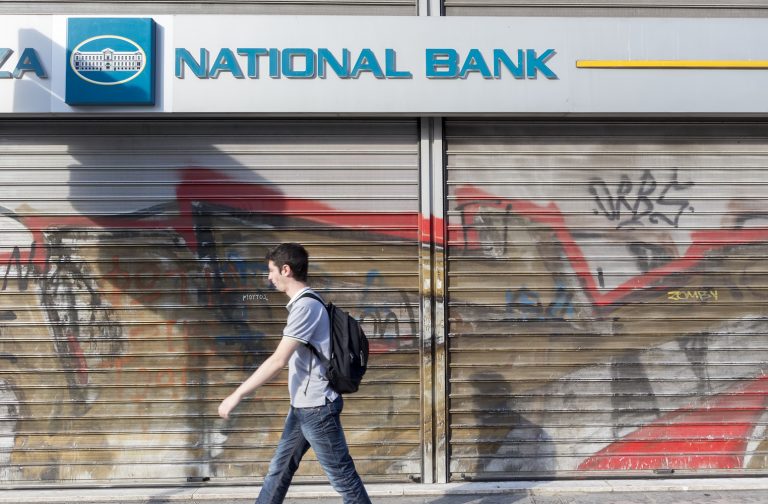
2022-3-30 08:00 |
Bitcoin has become the target of a new media campaign designed to address its environmental footprint.
And while the world’s first and largest cryptocurrency has long been a thorn in the eye of various regulators and environmental groups, this is the first time a coalition emerged with an actual solution to the problems of proof-of-work.
Called “Change the Code, Not the Climate,” the campaign is backed by a slew of environmental groups and activists working together to pressure the Bitcoin community to abandon the network’s consensus algorithm—and transition to proof-of-stake.
Staking Bitcoin in the name of the climate“You’ve heard Bitcoin fuels the climate crisis, but did you know a software code change could clean it up?”
These are the opening words of Greenpeace’s manifesto, in which they set the tone for the rest of their “Change the Code” campaign. As part of the campaign, Greenpeace will buy ads in leading media publications over the next month and reach out to key people and corporations in the crypto industry.
Greenpeace’s efforts were backed by the Environmental Working Group, various local activist groups battling Bitcoin miners, and a handful of influential industry leaders whose voices were the ones that put this campaign in the spotlight.
One of those voices belongs to Chris Larsen, the co-founder, and CEO of Ripple.
Larsen, who is currently worth over $3.4 billion, has so far pledged $5 million to finance Greenpeace’s effort, saying the contribution was made in a personal capacity and had no connection to Ripple.
His decision to fund the campaign wasn’t rushed. Last year, he made headlines for suggesting that the only viable solution to Bitcoin’s “devastating” impact on the climate was for the network to switch to a proof-of-stake consensus mechanism. He believes that the institutional interest Bitcoin has seen in the past couple of years is unsustainable and that the only way for it to enjoy investors’ support is to change from the ground up.
Many saw his extreme idea as a clandestine effort to bring XRP’s rival cryptocurrencies down. Larsen told Bloomberg that he wanted to see both Bitcoin and Ethereum succeed. That won’t happen, however, if Bitcoin doesn’t change.
“If I was concerned about Bitcoin as a competitor, probably the best thing I could do is let it continue on this path,” Larsen said. “This is just an unsustainable path.”
He told Bloomberg that the Bitcoin network already consumes as much power as Sweden and may consume as much power as the entire country of Japan in five years. He shares Greenpeace’s belief that the issue of Bitcoin’s power consumption should be fixed with a code fork, not with a push towards more renewable energy sources.
Part of Greenpeace’s “Change the Code, Not the Climate” campaign (Source: Clean Up Bitcoin)If Bitcoin switched to a proof-of-stake consensus algorithm like Ethereum is set to do this year, it could cut its energy consumption by 99%, he said.
“Now with Ethereum changing, Bitcoin is the outlier. Some of the newer protocols—Solana, Cardano—are built on low energy.”
The low energy consumption could be fixed either with a hard fork or a soft fork. While both would change the network’s code to make it less “power-hungry,” a soft fork would preserve Bitcoin as a single blockchain, while a hard fork would split it into two separate networks, Larsen said.
Greenpeace called this massive endeavor a “basic software change,” saying that it would make Bitcoin “stop polluting the planet” if implemented.
According to the campaign, it would only take 30 “people,” comprising of key miners, exchanges, and core developers, to agree for Bitcoin to “reinvent proof-of-work mining” or “move to a low-energy protocol.” This would make one of the most centralized networks in the entire blockchain market, putting all control over a $900 billion market in the hands of two dozen institutions.
Larsen isn’t blind to the resistance that is already forming against the campaign. He said that while “maximalist Bitcoiners” don’t want to deviate from Bitcoin’s current design, the institutional players that have begun entering the market don’t care.
“Now a lot of what’s driving crypto is the enormous liquidity that’s come from traditional market players. And generally, those people are not religious about those technologies. So it’s just a matter of time.”
The big players that have already entered the market now bear much of the responsibility to resolve Bitcoin’s energy consumption, Greenpeace said in its manifesto. These include Tesla’s Elon Musk, Block’s Jack Dorsey, and Fidelity’s Abby Johnson, as well as BlackRock, Goldman Sachs, and PayPal.
“We call on leaders in tech and finance to use their power to stop Bitcoin from wasting ours,” Greenpeace wrote on the Clean Up Bitcoin website.
Part of Greenpeace’s “Change the Code, Not the Climate” campaign (Source: Clean Up Bitcoin)There is, of course, no chance that any of this could actually happen.
Even if moving Bitcoin to a proof-of-stake consensus algorithm wasn’t so technically complex it’s almost impossible, there’s essentially no reason for that to happen.
Proof-of-work and the mining required to run it are what makes Bitcoin what it is. While some might see this design as “outdated,” it’s what keeps the network secure and resilient.
It’s that security that has created an asset that was worth over a trillion dollars at its peak last year. The slow and steady development pace of Bitcoin is what makes it a better hedge against inflation, fiat currencies, and often the rest of the crypto market.
The mining industry, with its $15 billion revenue, is behind one of the biggest global pushes toward renewable energy. While it’s hard to quantify the industry’s effect on climate change, it’s likely that the excess energy it captures and the alternative sources it uses will have to potential to offset it.
The post “Change the code” and the insane push to make Bitcoin a centralized, proof-of-stake network appeared first on CryptoSlate.
origin »Bitcoin price in Telegram @btc_price_every_hour
Bitcoin (BTC) на Currencies.ru
|
|

























